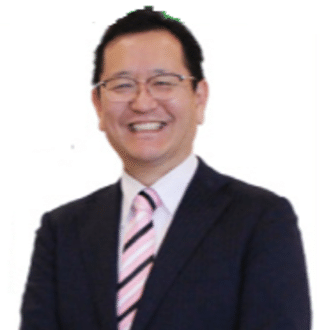
アストラゼネカ、緊張の中、中国事業を分社化する計画を草案/FTを読む
AstraZeneca drafts plan to spin off China business amid tensions
アストラゼネカ、緊張の中、中国事業を分社化する計画を草案
Anglo-Swedish drugmaker views listing a separate unit in Hong Kong as potential shelter from global strife
英国系スウェーデンの製薬会社、香港での別部門の上場を、世界的な苦境からの避難先として考えている
AstraZeneca has drawn up plans to break out its China business and list it separately in Hong Kong as a way to shelter the company against mounting geopolitical tensions.
アストラゼネカは、地政学的緊張の高まりから同社を守る手段として、中国事業を切り離し、香港に別途上場する計画を策定した。
The Anglo-Swedish drugmaker began discussing the idea with bankers several months ago and is among a growing number of multinational companies now considering that option, according to three people familiar with the talks.
交渉に詳しい関係者3人によると、英国とスウェーデンの製薬会社である同社は数カ月前からこの案について銀行関係者と協議を開始しており、現在その選択肢を検討している多国籍企業の数は増えている。
A separation might not ultimately take place, the same people cautioned. One of the people said listing the entity in Shanghai was also possible.
最終的に別居が実現しない可能性もある、と同関係者は警告した。関係者の1人は、上海に上場することも可能だと述べた。
The discussion shows the significant restructuring multinational corporations could be forced to undertake as they adapt to growing friction between China and the US and its allies.
この議論は、多国籍企業が中国と米国およびその同盟国との間の摩擦増大に適応する際に、大規模なリストラを強いられる可能性があることを示している。
Under the plans AstraZeneca, which is the UK’s biggest listed company by market value at £183bn, would carve off its operations in China into a separate legal entity but would retain control of the business.
この計画の下では、時価総額1,830億ポンドで英国最大の上場企業であるアストラゼネカは、中国での事業を独立した法人として分離するが、事業の支配権は保持することになる。
The idea has been “on the table for a few years”, one adviser to AstraZeneca said, adding that it had been sidelined until recently amid a global downturn in biotech stocks.
アストラゼネカのアドバイザーの一人は、この構想は「数年前から検討されていた」と述べ、バイオテクノロジー株の世界的な下落のさなか最近まで検討から遠ざかっていたと付け加えた。
“Every multinational with a strong China business” seems to have considered a similar move, one senior Asia-based banker said. “Even if it’s just the option to give you flexibility in the future, it’s worth thinking about.”
アジアを拠点とするある上級銀行家は、「中国事業に強い多国籍企業はどこも」同様の動きを検討しているようだと語った。 「たとえそれが、将来的に柔軟性を与えるための選択肢だったとしても、検討する価値はあります」。
A person briefed on AstraZeneca’s plans said listing a separated unit in either Hong Kong or Shanghai could insulate it politically from any moves by China to crack down on foreign companies, by making it a more plausibly domestic Chinese business. It would also offer a separate source of capital.
アストラゼネカの計画について説明を受けた関係者は、分離した部門を香港か上海に上場することで、よりもっともらしい中国国内事業にすることで、外国企業を取り締まる中国の動きから政治的に遮断できる可能性があると述べた。それはまた別の資本源を提供することになるだろう。
They said the separate listing could also help investors in the remaining company reassure themselves that they had less exposure to China-related risk.
両社は、分離上場することで、残りの会社の投資家が中国関連リスクへのエクスポージャーが少ないと安心することにもつながる可能性があると述べた。
One consultant to pharmaceutical companies added that pursuing a domestic listing could help AstraZeneca court Beijing’s support for drug innovation and win faster approvals for therapies developed in China.
製薬会社のコンサルタントの一人は、国内上場を目指すことで、アストラゼネカが北京の医薬品イノベーションに対する支援を受け、中国で開発された治療薬の承認をより早く獲得することができると付け加えた。
It would not be the first time the pharmaceutical group has pursued separate financing for its China operations. In 2017, AstraZeneca created a research and development joint venture with a Chinese fund. The venture, Dizal Pharmaceutical, was listed in Shanghai two years ago.
製薬グループが中国事業のために個別の資金調達を追求するのはこれが初めてではない。 2017年、アストラゼネカは中国のファンドと研究開発合弁会社を設立した。このベンチャー企業ディザル・ファーマシューティカルは2年前に上海で上場した。
AstraZeneca said it did “not comment on rumours or speculations around future strategy or M&A”.
アストラゼネカは「将来の戦略やM&Aに関する噂や憶測にはコメントしない」と述べた。
AstraZeneca is the largest overseas pharmaceutical company in China by sales, generating $1.6bn in the country in the first quarter. “China is more important to AstraZeneca than [to] other large pharmaceuticals,” said the consultant. It has been expanding its Chinese business, with recent approvals of drugs for cancer and one for a rare disease.
アストラゼネカは売上高で中国最大の海外製薬会社で、第1四半期に国内で16億ドルを売り上げた。同コンサルタントは「アストラゼネカにとって中国は他の大手製薬会社よりも重要だ」と述べた。同社は中国事業を拡大しており、最近ではがん治療薬と希少疾患治療薬が承認された。
China is an attractive market for pharmaceutical companies because of its large and ageing population, which is increasingly suffering from diseases caused by smoking, pollution and westernised diets. The Chinese government has sped up approval processes for innovative treatments, trying to encourage drugmakers to expand beyond offering only their older or generic treatments in the country.
中国は人口が多く高齢化が進んでおり、喫煙、公害、西洋化した食生活によって引き起こされる病気にますます苦しんでいることから、製薬会社にとって魅力的な市場となっている。中国政府は革新的な治療法の承認プロセスを加速し、国内で自社の古い治療法やジェネリック治療薬のみを提供するだけでなく、製薬会社の事業拡大を奨励しようとしている。
AstraZeneca has also said it is interested in doing deals with Chinese biotechs. After returning from a tour of the country, chief executive Pascal Soriot said in April the company had “no limitation” on buying Chinese businesses. Last month it signed a partnership worth up to $600mn with Shanghai-based LaNova Medicines, for the global licence for a possible cancer drug.
アストラゼネカはまた、中国のバイオテクノロジー企業との取引に興味があると述べた。パスカル・ソリオ最高経営責任者(CEO)は国内視察から帰国後、4月に中国企業の買収に「制限はない」と述べた。先月、同社は上海に本拠を置くLaNova Medicinesと、抗がん剤候補の世界的ライセンスに関して最大6億ドル相当の提携を結んだ。
Michel Demaré, the company’s chair, told the Financial Times last month: “When you are a global company like AstraZeneca you have always to cope with geopolitical risk and you have to try to manage that without getting too involved.”
同社会長のミシェル・デマレ氏は先月フィナンシャル・タイムズに対し、「アストラゼネカのようなグローバル企業であれば、常に地政学的リスクに対処しなければならず、あまり巻き込まれずにそれに対処するよう努めなければならない」と語った。
英語学習と世界のニュースを!
いいなと思ったら応援しよう!

